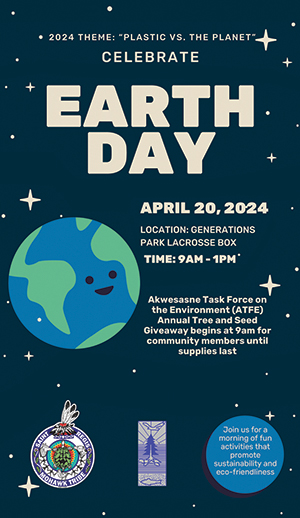Global Indigenous: Government pardons, environmental concerns and words that matter
Coverage around the world on Indigenous issues for the week ending Sept. 18, 2022
By Deusdedit Ruhangariyo. Special to ICT.
Around the world: Indonesia pardons 75 companies operating illegally inside protected forest areas, medical words matter to Aboriginal people, Vietnam faces opposition in its bid to join the UN’s Human Rights Council, Indigenous youth in Canada learn to care for the land, and a Australia council dumps a name associated with the slave trade.
INDONESIA: 75 companies pardoned for illegal operations
Indonesia has pardoned 75 companies operating illegally inside protected forested areas, and hundreds more are expected to be given amnesty in the future, Mongabay.com reported on Sept. 15.
Lax oversight had allowed companies to continue activities such as oil palm cultivation and mining that had been prohibited on lands zoned as forest areas under a 2013 law aimed at preventing forest degradation, Mongabay.com reported.
At a parliamentary hearing on Aug. 22, the Ministry of Environment and Forestry officials announced they had identified 1,192 entities operating illegally inside forested areas, including at least 616 companies, 40 government units, 129 cooperatives and 407 individuals.
In 2020, Indonesia announced an amnesty program that gave plantation operators a grace period of three years to obtain the proper permits or necessary rezoning of their operations to a non-forested area, and to pay any applicable fines.
The amnesty program applies to companies that have gotten permits from regional governments but not the final permits from the central government to operate legally.
More than 850 of those cited operate plantations, Mongabay.com reported.
AUSTRALIA: Medical words can also cause trauma
An Indigenous heart expert says certain medical language used in doctors’ notes is obsolete and stirs feelings of trauma among First Nations people, the National Indigenous Times reported on Sept. 17.
Vicki Wade, Noongar, a former cardiac nurse and now director of RHDAustralia, which works to prevent rheumatic heart disease, said that describing patient behavior as “non-compliant” brings unwelcome reminders of government attempts to control Indigenous people.
“I’ve seen it in my medical notes. I’ve seen it my mum’s notes, time and time again,” she said, according to NIT. “It goes back to how government have controlled Aboriginal people.”
The comment came amid debate over the wording in a coroner’s investigation into the deaths in 2019 and 2020 of three Aboriginal girls from rheumatic heart disease in Queensland.
Anna Ralph, an RHDAustralia clinical advisor, said similar language “went out decades ago” in the Northern Territory. She said health officials should avoid blaming the patient.
VIETNAM: Human Rights Council bid under fire
More than 50 environmentalists from around the world have signed a letter calling on the United Nations Human Rights Council to vote against Vietnam’s bid for membership, citing growing actions against environment defenders in the country, Mongabay.com reported on Sept. 14.
A vote on Vietnam’s membership is expected to take place during the 51st Human Rights Council session, which began Sept. 12 and will continue through Oct. 7. If approved, Vietnam would serve on the council for the 2023-2025 term.
The authors of the letter are all winners of the Goldman Environmental Prize, which recognizes grassroots environmental activists from around the world.
The letter cites the sentencing of Nguy Thi Khanh, founder of Hanoi-based GreenID and Vietnam’s first Goldman Prize winner, in June to two years in prison on tax evasion. Khanh is perhaps the country’s most high-profile voice on climate and energy, Mongabay.com reported.
The letter also cites the five-year sentence given to Dang Dinh Bach, an environmental lawyer and former director of the Law and Policy of Sustainable Development Research Center, also on tax charges.
“Vietnam’s tax laws are incompatible with human rights norms, and are being used to silence leaders of nonprofit organizations,” the letter said.
CANADA: Youth learn to care for the land
A six-week program in Manitoba, Canada, is teaching Indigenous youth to care for the land through on-the-ground knowledge about trees, wildfires, Indigenous medicines and the environment, CBC News reported on Sept. 17.
During a recent outing, the Outland Youth Employment Program took a group from across Manitoba to the Duck Mountain Provincial Park to spend a day cleaning up a stretch of the Trans Canada Trail.
They picked up garbage, fixed trail signs, built boardwalks and paths, and cleared brush and branches, CBC News reported.
Crew chief Blaze Head, 19, of the Opaskwayak Cree Nation in Manitoba, is now in his fourth year working with the program.
“When I first started, I saw it as an opportunity to get myself out there and be able to reach out to employees better, get opportunities for myself,” said Head, according to CBC News. “I’m all about that for my youth. I wanna see them succeed like I did.”
The youths acquire skills on tree planting and wildfire management while learning about logging, mining and the environment. They also learn about Indigenous medicines and the importance of defending sacred ground, CBC News reported.
AUSTRALIA: Council dumps name associated with slave trade
The Melbourne Council has won approval to change its name to Merre-bek, an Indigenous word that means “rocky country” recommended by Wurundjeri elders, The Guardian reported on Sept. 16.
The original name had derived from Farquhar McCrae, who named a plot of land he acquired in 1839 after a Jamaican slave plantation that his father and grandfather operated from 1770-1796. The plantation produced sugar and rum, and traded in enslaved people.
Merre-bek was one of three names –valong with Jerrang and Wa-dam-buk – suggested by Wurundjeri elders, and was supported by more than 59 percent of residents who filled out a survey. Just 6 percent of respondents chose no name change.
Councilor Adam Pulford said changing the name is an “act of reconciliation with traditional owners.”
“When we learned our community’s name is tied to the history of racism, slavery and dispossession, we had a decision to make: Do we keep tied to that history? Or do we move forward with a name that is more inclusive, that honors the traditional owners of this place and connects us to our history dating back tens of thousands of years?” he told The Guardian.
“Language matters. The names we choose for things matters. It dictates the stories we tell and the values we hold, so it was an important decision to change it when the traditional owners raised it.”
Final thoughts
My final thoughts go to environment defenders around the globe but especially in Vietnam, where two prominent environmentalists have been imprisoned after speaking out. It is unfortunate that the defenders become victims of a government that should be protecting them. We should all stand with environment defenders. They are doing us a favor by defending the future of our children and our children’s children.
Global Indigenous is a weekly news roundup published every Wednesday by ICT (formerly Indian Country Today) with some of the key stories about Indigenous peoples around the world. Reprinted with permission from ICT.






Reader Comments(0)